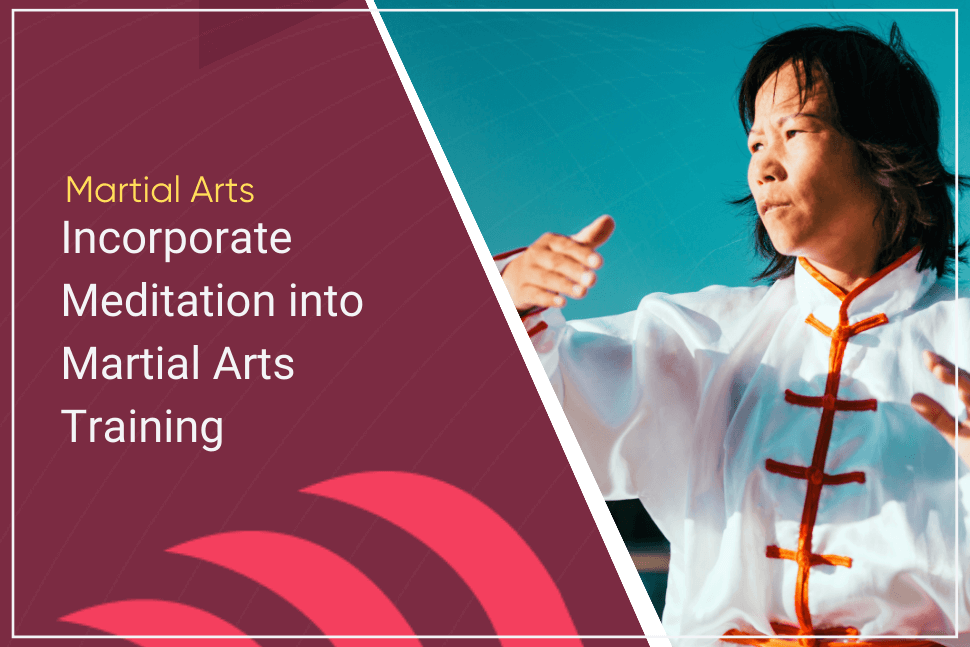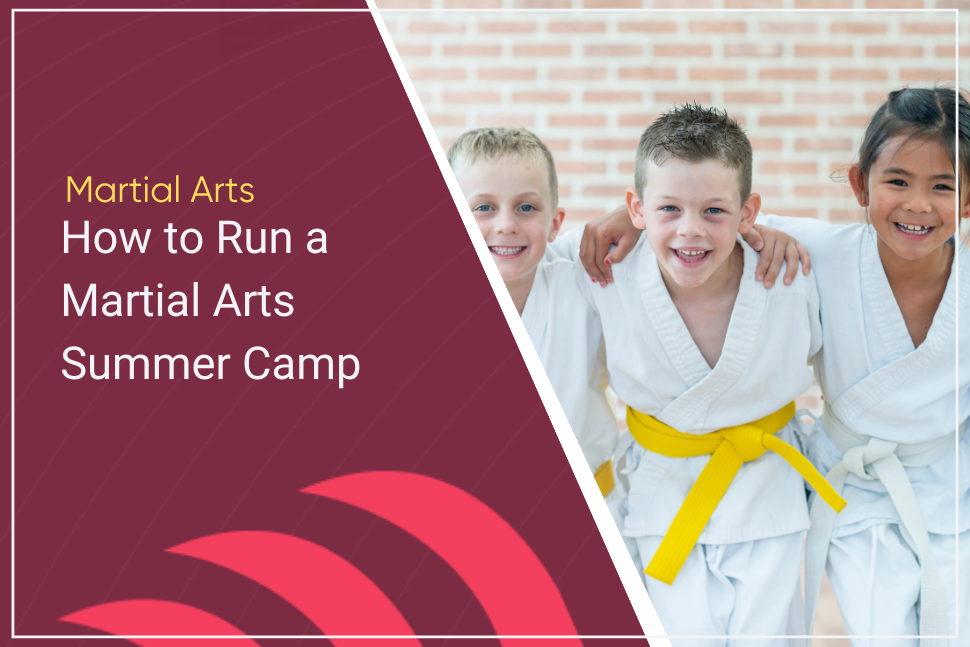Everyone knows meditation exercises help with anxiety, but did you know it can enhance learning, too?
It can also help you navigate the physiological handicaps that show up when your brain detects a serious threat.
But controlling adrenaline dumps and minimizing your impairment during the fight or flight state aren’t the only reasons to practice meditation. It also improves your ability to learn, retain information, and supports overall health and wellbeing off the mat.
Incorporating meditation in your marital arts program equips your students to stay in control. In this article, we unpack the benefits of meditation in more detail.
What is Meditation?
It’s challenging to determine precisely where meditation came from as it can be traced back 1,000’s of years ago. The word meditation has the Latin root meditatum, meaning “to ponder.” As humans are as much thoughts as they are bodies, meditation is perhaps as old as time.
Meditation is a varied practice taking several different forms. You can meditate on your body’s movement, physical responses, emotional state, or belief systems. Formally recognized disciplines of meditation include:
- Spirituality
- Mindfulness
- Focus
- Visualization
- Chanting
- Movement
Regardless of the approach to meditation, all of these forms share a common goal of awareness and harmony. Meditation is about accepting what is and connecting with the present moment without reactive judgment.
Don’t be fooled by the image of crossed legs, eyes closed, and a person humming “ohm” for hours. Meditation can be practiced solo or in a group activity. It can be done for a few dedicated minutes or throughout the day as a way to process thoughts.
Meditation in Martial Arts
Meditation isn’t likely the first thing that comes to mind when considering an encompassing martial arts program. After all, meditation is calm, intentional, and even relaxing. Martial arts can be intense, powerful, and even physically destructive.
Still, you don’t get to the powerful or destructive aspects of training until you learn all the foundational tools. This includes mastering the battles in our minds, of which meditation is an invaluable training tactic. Martial arts and meditation have a long history together, dating back to Taoist and Buddhist practices in 400 BC.
You don’t have to be running a Tai Chi gym to use meditation in your martial arts program, though. In fact, you don’t have to block off instructional time during practices at all to harness the benefits. A few common forms of meditation that pair well with practices, include:
- Movement Meditation: An awareness of and feeling connected with one’s body during specific movements.
- Mindfulness Meditation: Observation of the total body experience to include thoughts, sensations, and feelings as they occur.
- Visualization Mediation: Using all five senses to create a realistic scene in the mind of a desired outcome.
You can incorporate any of these tactics as you instruct your students and increase their awareness, competence, and ability to think clearly. Meditation in martial arts training has many benefits for you and your students in and out of the gym.
Embody a Holistic Martial Arts Program
Martial arts training is about more than learning how to kick, punch, or lay a perfect submission. A holistic approach to teaching martial arts must also focus on the personal development of self-discipline, confidence, leadership, and self-control. In order to achieve that, you have to take your students inward.
Inside the mind and body of a student studying martial arts, several things can happen at once. Depending on whether you’re stepping out for a belt-testing or stepping into a ring to engage in combat, martial arts can produce senses of:
- Self-Doubt: Fighting inward battles of inadequacy in the face of a challenge is a common occurrence in the discipline.
- Physiological Response: Hearts race, pulses quicken, and breathing can become rapid when facing the challenges of a combat sport.
- Decreased Processing: In order to focus on a high-stress event, the brain needs to reduce sensitivity to other resources such as hunger, fear, or pain.
The meditation practice of mindfulness pairs seamlessly with the art of combat sports. This approach to inner connection is all about focusing and accepting what’s currently happening. Incorporating mindfulness as an approach to meditation will help your students slow down, focus, and access what’s happening in the moments of action.
Sharpen the Learning Process
Being in “the zone” is where you’re acutely aware of and engrossed in the moment. While you’re in the zone, nothing else takes attention, and all senses are focused on the task at hand. It turns out you can access the zone by learning meditation.
Why is the zone, also called the flow, essential for a martial arts student? The flow is a place where brain activity matters. People in the state of flow have disengaged their dorsolateral prefrontal cortex, which is where logic and critical thinking can turn to self-sabotage.
The flow sharpens learning as it opens doors for quick memory recall while also creatively incorporating existing knowledge with new possibilities. Entering “the zone” cues instinctual movement with muscle memory. Prime your students for a flow state, starting with mindfulness meditation during warmups focusing on:
- Breathing
- Posture
- Stance
- Technique & Familiar Patterns
Since class time is at a premium, this should only take 3 to 5 minutes. Meditation just before training was a common practice in martial arts, even in the United States, but it has since fallen out of favor. Bringing it back might be what martial arts training needs.
Decrease Stress & Anxiety
Not only does meditation set the tone for acquiring new information, but it can also change patterns of existing responses. Stress and anxiety are two emotions that get a bad rap. However, they do serve a purpose. Stress and anxiety signal danger and prime the body for response to the threat. Naturally, they have their place in combat sports.
The hippocampus, part of the limbic system in your brain, regulates stress and anxiety. Research supports that regular meditation in a state of mindfulness can not only reduce overall stress, but it may actually change the hippocampus’ ability to respond to stressful events by increasing gray matter.
What does this mean for your martial arts students? It means that when the heat is turned up, meditation can help them keep their cool, allowing them to make more precise decisions. You can’t be in the ring with them on fight night, so practice is the place to lay out all the battle tools.
Aid in Faster Recovery
The close link between the mind and body connection is incredible. People can achieve feats of greatness with the proper mindset, as well they can encounter defeat before a challenge begins. It all starts in the mind, and meditation is about harnessing the focus.
When an athlete suffers an injury, it can wreak havoc on their thoughts. They may wonder if they’ll ever participate in their sport again. They can worry about reduced fitness during the road to recovery. They might also focus on their physical pain. All of these thoughts can produce:
- Stress
- Anxiety
- Depression
- Sleep Disturbance
- Anger or Sadness
- Cognitive Dysfunction
However, equipping your students with meditative practices in your martial arts program could shorten their recovery times.
Meditation has been shown to have overall benefits of reduced stress and improved mental clarity, which promote a healthier mindset during recovery. Still, research on DNA suggests that meditation can increase the size of a DNA-protein called telomeres, aiding the body’s repair process.
Improve Quality of Life
Martial artists are people who generally enjoy life. They’re aware of challenges but have the confidence to overcome and adapt to them effectively. Using mediation in your martial arts program is another way to build competence, gain clarity, and improve overall quality of life.
Over time and practice, mediation can produce a constant sense of calm and awareness. You can improve your overall mindset and eliminate patterns of negative thinking. All of this has comprehensive health benefits too.
Stress is a silent killer, with permeating ill effects on your body, such as insomnia, heart conditions, and prolonged illness. By contrast, using meditation to reduce stress can lead to improved quality of sleep, better heart health, and proactive coping mechanisms.
Conclusion
Instilling a love of martial arts goes beyond devastating punches, triangle chokes, or clinch positions. It’s about teaching people to stay calm, reason, and employ a set of skills to overcome an opponent.
Those lessons, in turn, cascade off the mat and enrich the everyday lives of martial artists. This includes an overall healthier lifestyle and outlook.
Our most significant oppositions often occur in the mind. A for that, incorporating meditation into your martial arts program will not just give your students a leg up on the competition but overall better wellbeing off the mat.
 Gym Owner Statistics: The State of Gyms, Member Trends, and Usage Data
Gym Owner Statistics: The State of Gyms, Member Trends, and Usage Data



